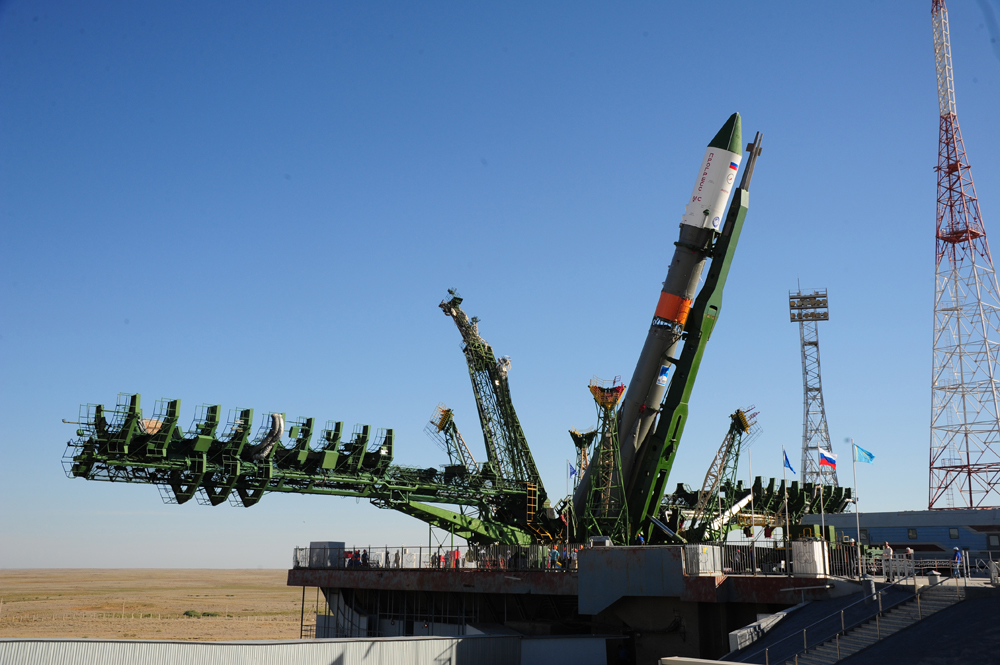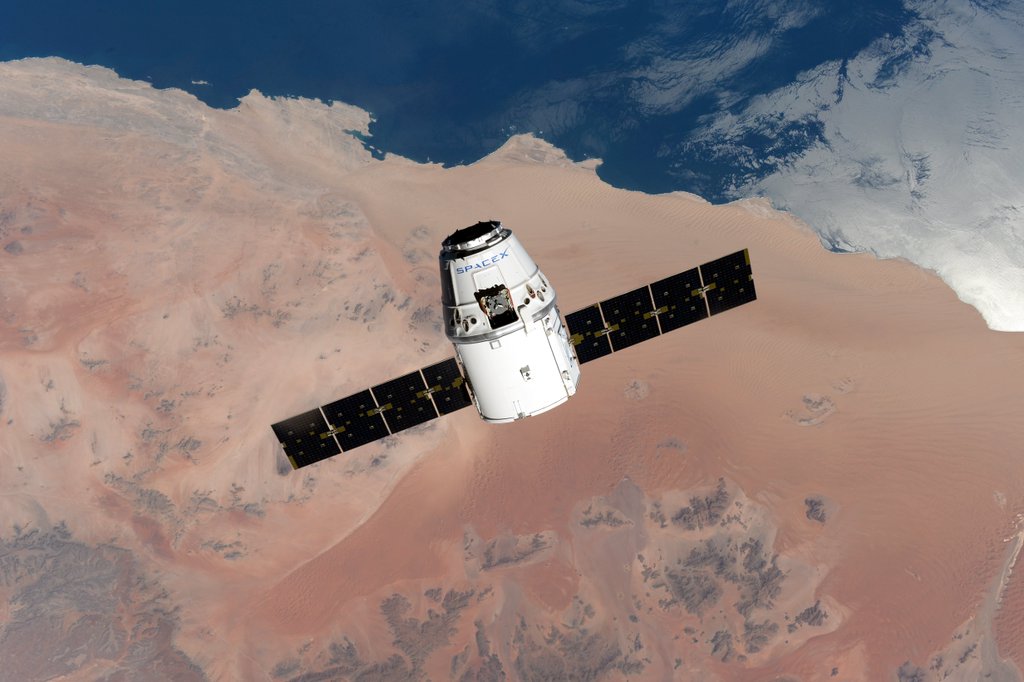Two for One! Space Station Gets Rocket-Launch Double Shot This Weekend

It's a doubleheader of cosmic proportions: This weekend, not one but two rockets are launching cargo missions to the International Space Station (ISS), and you can watch the action live online, thanks to NASA.
First, here's what's flying and when: On Saturday, July 16, an uncrewed Russian Progress 64 cargo ship will launch at 5:41 p.m. EDT (2141 GMT) from Kazakhstan's Baikonur Cosmodrome to deliver 3 tons (2.7 metric tons) of supplies to the space station.
Two days later (on Monday, July 18), the private company SpaceX will launch its own mission, with a Falcon 9 rocket and robotic Dragon capsule lifting off from Florida's Cape Canaveral Air Force Station. That mission will launch at 12:45 a.m. EDT (0445 GMT) on Monday to deliver even more supplies for the station's six-person crew. You can watch both rocket launches live online here, courtesy of NASA TV.
The action begins in earnest on Saturday at 2 p.m. EDT (1800 GMT), when NASA and SpaceX will hold a prelaunch press conference for the upcoming Dragon resupply mission. Called CRS-9 (short for Commercial Resupply Services 9), the Dragon mission is SpaceX's ninth commercial cargo mission for NASA under a contract worth a total of $3.1 billion for up to 20 flights.
During the prelaunch briefing, SpaceX and NASA officials will discuss the supplies launching on Dragon for CRS-9, their importance for the space station's operations and the weather forecast for the upcoming launch. SpaceX representatives may also discuss whether the company aims to make a landing attempt for its Falcon 9 rocket after delivering Dragon into orbit. The company has made several landings on an ocean barge this year, and maintains a land-based landing pad near its Cape Canaveral launch site.
After the SpaceX prelaunch briefing, Saturday's launch action picks up at 5:30 p.m. EDT (2130 GMT), when NASA's broadcast of Russia's Progress 64 cargo ship will begin — just 11 minutes before the scheduled launch. Liftoff is set for 5:41 p.m. EDT (2141 GMT), but the local time at Baikonur will actually be 3:41 a.m. on Sunday.
Breaking space news, the latest updates on rocket launches, skywatching events and more!
Progress 64 is a robotic cargo ship ferrying 3 tons of supplies to the space station for the Russian Federal Space Agency, Roscosmos. Progress vehicles look similar to Russia's crew-carrying Soyuz spacecraft, but instead of a crew capsule, the automated cargo ships carry propellant for the space station's thrusters.
Progress 64 will take two days to reach the International Space Station after launch. The rocket's flight profile calls for 34 orbits of Earth before arriving late Monday night, at 8:22 p.m. EDT (0022 GMT). That means SpaceX's Dragon will launch (liftoff is set for 12:45 a.m. EDT on Monday, if you recall) while Progress 64 is still en route to the space station, resulting in a sort of cosmic traffic jam.
NASA's webcast for the SpaceX Dragon launch will begin Sunday night, at 11:30 p.m. EDT (0330 GMT), and run through the flight itself. If all goes well, NASA and SpaceX plan to hold a post-launch press conference at 2 a.m. EDT (0600 GMT).
Monday is the marathon day of the rocket-launch schedule. The day starts with the SpaceX launch and will end with Progress 64's arrival at the space station.
NASA's webcast for the docking coverage will begin at 7:30 p.m. EDT (2330 GMT) and run through spacecraft contact and capture. Progress 64 will dock at the space station's Russian-built Pirs docking compartment and will remain attached to the orbiting lab for six months. It is due to depart the station in mid-January 2017 and will be disposed of when it burns up in Earth's atmosphere.
SpaceX's Dragon space capsule, however, will return to Earth sooner if its mission launches as planned. Given a Monday launch, Dragon is due to arrive at the space station early on Wednesday, July 20 (that's also the anniversary of the 1969Apollo 11 moon landing). The NASA webcast for Dragon's arrival will begin at 5:30 a.m. EDT (0930 GMT). The capsule is expected to take more than 4 hours to park safely.
Dragon will remain at the station for five weeks and then return to Earth on Aug. 29. The capsule is equipped with a protective heat shield and parachutes that will allow it to splash down in Pacific Ocean off the coast of Baja California. While SpaceX is not the only commercial company with a NASA contract to deliver station cargo (Orbital ATK also has one), Dragon is the only vehicle currently capable of returning complete experiments and other gear to Earth for further study.
And that will do it! Whew! That's a lot of spaceflight action crammed into a weekend and early next week, but they should be an exciting few days for space fans.
Visit Space.com's space webcast page throughout this weekend and in the early part of next week to watch the Progress 64 and SpaceX Dragon deliveries to the space station.
Email Tariq Malik at tmalik@space.com or follow him @tariqjmalik and Google+. Follow us @Spacedotcom, Facebook and Google+. Original article on Space.com.

Tariq is the award-winning Editor-in-Chief of Space.com and joined the team in 2001. He covers human spaceflight, as well as skywatching and entertainment. He became Space.com's Editor-in-Chief in 2019. Before joining Space.com, Tariq was a staff reporter for The Los Angeles Times covering education and city beats in La Habra, Fullerton and Huntington Beach. He's a recipient of the 2022 Harry Kolcum Award for excellence in space reporting and the 2025 Space Pioneer Award from the National Space Society. He is an Eagle Scout and Space Camp alum with journalism degrees from the USC and NYU. You can find Tariq at Space.com and as the co-host to the This Week In Space podcast on the TWiT network. To see his latest project, you can follow Tariq on Twitter @tariqjmalik.

